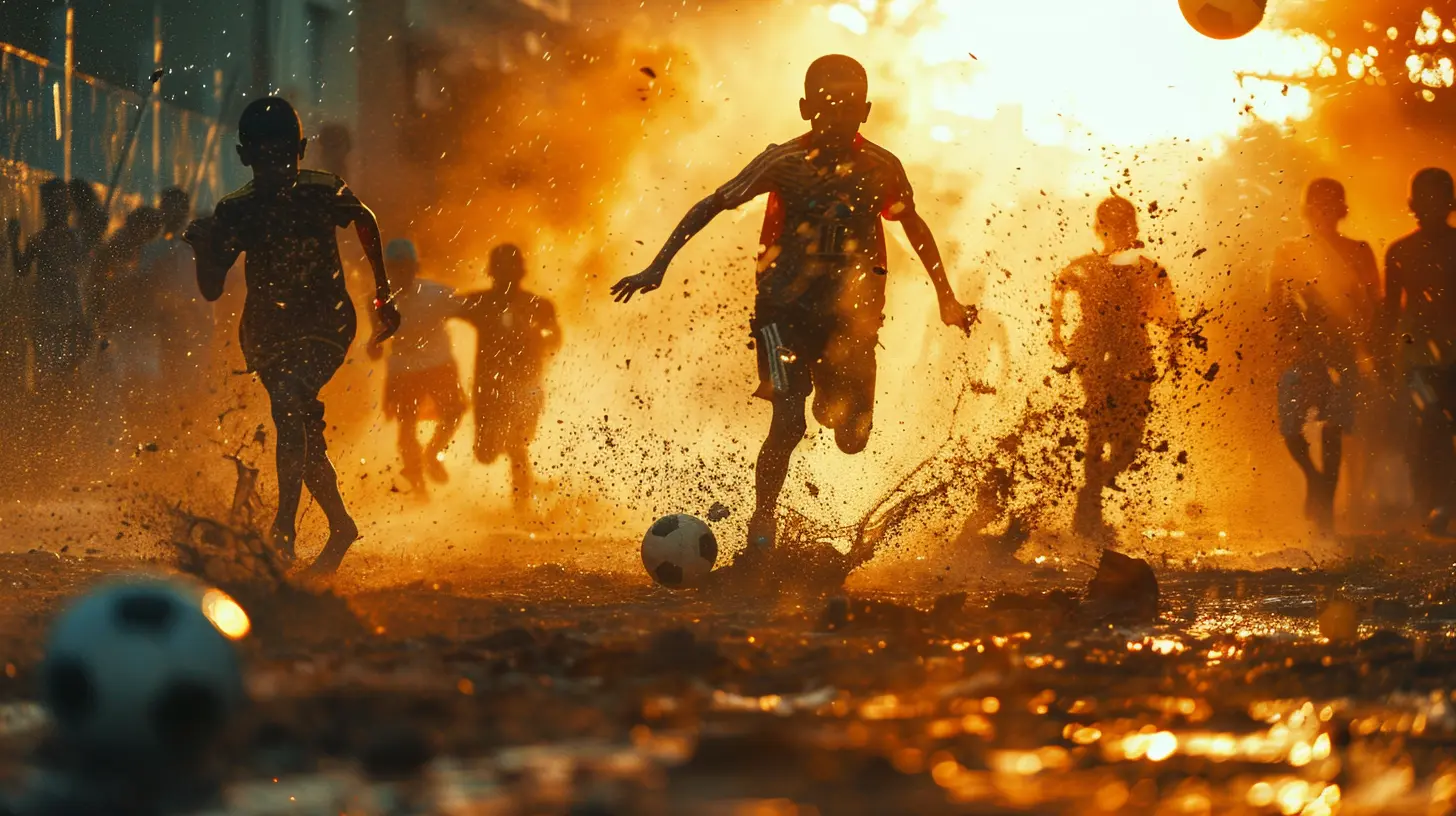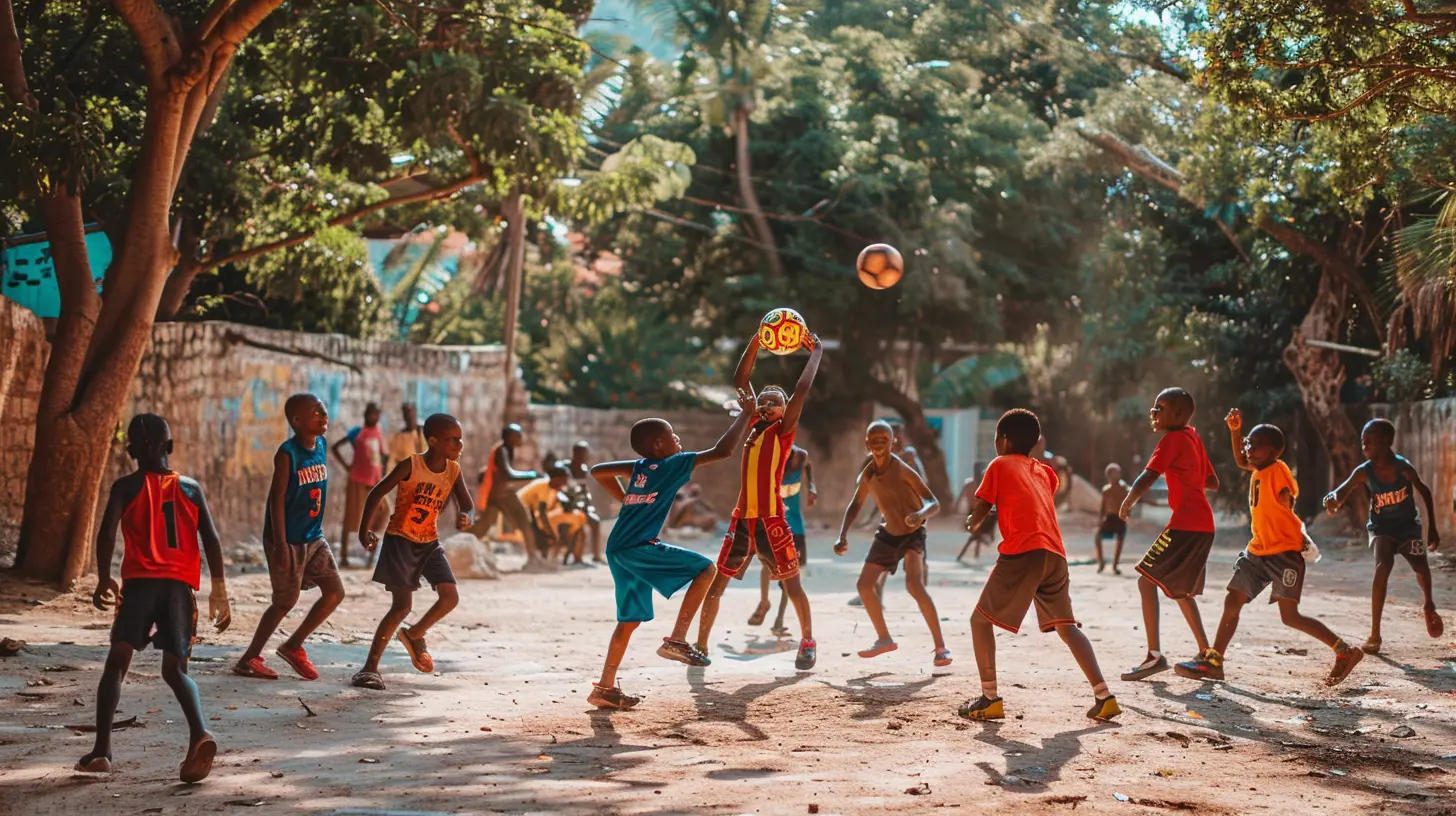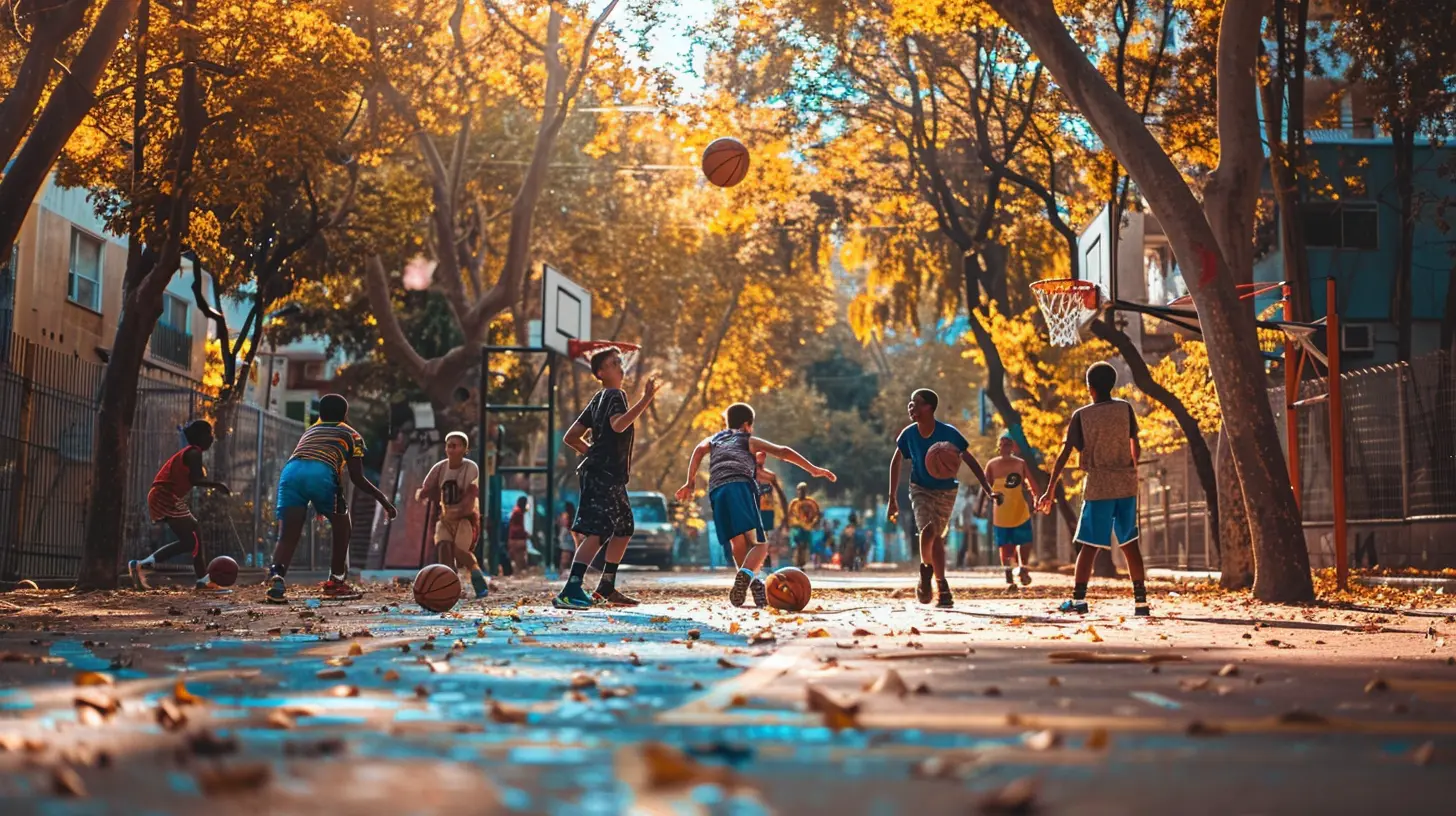How Charity Games Are Transforming Communities Through Sports
26 September 2025
In a world that sometimes feels divided, one thing still brings us together: sports. Whether it's a local pickup game or the final seconds of a championship clash—sports have an uncanny way of uniting people. But what if I told you that sports aren’t just about winning trophies or scoring goals? What if they could heal wounds, rebuild communities, and even change lives? That’s where charity games come in—and trust me, they’re doing far more than you might imagine.

What Are Charity Games, Really?
Let’s break it down. Charity games are sports events—football matches, basketball games, marathons, and more—organized with the aim of raising funds or awareness for a cause. But here's the twist: they’re not just a cool way to bring celebrities and athletes together. They’ve evolved into powerful tools for community upliftment.These aren't just feel-good stunts or publicity magnets (though they do attract attention). Charity games are becoming lifelines, fueling local projects, supporting underprivileged groups, and even inspiring the next generation of athletes.

Why Sports? Why Not Something Else?
Great question. Think about the last time you watched a game—even on TV. The tension, the excitement, the camaraderie. Sports have a magnetic quality. They don’t discriminate. They transcend age, race, religion, and class.Now imagine that same energy channeled into helping someone afford school, build a home, or recover from a disaster. Sports aren't just games—they’re platforms for change. When used right, they speak louder than any billboard ever could.

The Power of Charity Games in Action
1. Raising Funds for Local Causes
Let’s get one thing straight—money matters. And charity games are raising a ton of it. Whether it’s a celebrity football game raising six figures for a children’s hospital or a local 5K contributing to cancer research, every dollar raised goes toward something greater than the game itself.Events like Soccer Aid, NBA Cares games, and local benefit matches have funneled millions into nonprofit efforts. And guess what? It doesn’t always take a professional league to make an impact. A community basketball game at a high school gym can do wonders when backed by the right intention and promotion.
2. Building Stronger Communities
Here’s something people often overlook—charity games don’t just help those they're fundraising for. They also bring neighborhoods together.When you host an event that invites everyone—from toddlers to grandparents—you create a sense of togetherness. Local vendors are showcased, volunteers feel involved, and attendees leave with a renewed sense of connection. It’s like a block party with a purpose.
Take an example from Detroit, where a baseball charity game brought together rival communities. That one event sparked dialogue, broke barriers, and laid the groundwork for more collaborative efforts.
3. Empowering the Next Generation
Youth sports programs often rely on donations and community support to survive. Charity events can generate the financial backing these programs need—but more importantly, they give young people a chance to dream big.Seeing their local heroes or even international stars participate in games for a cause teaches kids that sports isn’t just about personal glory. It’s about responsibility. That message right there? It’s priceless.
And for some, playing in these games or even attending them becomes a life-changing moment. It’s how the next coach, athlete, or philanthropist gets inspired.

Real-Life Impact: Stories That Hit Home
Want some proof this works? Let’s dive into a few real-world examples that show charity games are about much more than fun and games.The Game That Rebuilt Schools in Puerto Rico
After Hurricane Maria, many schools in Puerto Rico were left in shambles. One U.S.-based charity basketball game, featuring NBA legends and celebrities, raised enough funds to restore crucial infrastructure. But more than that, the event shone a light on Puerto Rico’s needs long after the headlines had moved on.Kick for Kindness – South Africa's Soccer Revolution
In Cape Town, “Kick for Kindness” started as a small community soccer match to fund school uniforms. Fast forward a few years, and it’s now a regional event involving multiple towns and dozens of schools. Beyond donations, it’s fostered peace in areas long divided by gang violence. That’s the power of one game turning into a movement.Local Heroes, Big Impact – Chicago’s Streetball Charity League
Every summer, Chicago’s community leaders organize a streetball league to raise money for low-income families and youth programs. What started as a friendly 3-on-3 tournament is now a city-wide cultural event. It’s even helped lower summer crime rates in surrounding neighborhoods. How’s that for a scoreboard?Why Charity Games Work So Well
You might wonder—why do charity games work better than other fundraising events? Here’s the truth:1. They Feel Inclusive
Unlike galas that need a fancy dress code or corporate events that feel stiff, charity games welcome everyone. You don’t need to be rich, important, or well-connected to watch or even play. That inclusive vibe encourages more participation—and more donations.2. They’re Easy to Promote
Sports plus charity equals viral potential. Thanks to social media, even a small event can gain traction fast. People love sharing heartwarming stories, and charity games naturally lend themselves to that.Think about it—what gets more shares? A formal dinner photo or a video of kids scoring a basket for cancer awareness?
3. They Offer Double the Fun
Let’s be real—people love being entertained. Charity games hit two birds with one stone: they give a great show and allow people to feel like they’re part of something meaningful.Whether it’s watching your favorite celebrity kick a goal or laughing through a local dad’s three-point fail, everyone walks away with a smile—and a story.
How You Can Get Involved
Feeling inspired? Good, because this is where you come in.Organize Your Own Charity Game
You don’t need ESPN-level sponsorships. Start small—talk to local schools, community centers, or sports clubs. Pick a cause, gather a few volunteers, and let the games begin. Every great movement starts with someone taking that first step.Volunteer Your Time
Not the sporty type? No problem. Charity events need more than players. They need organizers, accountants, marketers, and cheerleaders. Whatever your skill, there’s a spot for you.Support Existing Events
Can’t start your own just yet? Attend one. Buy a ticket. Share a post. Invite friends. Every bit of engagement helps keep the momentum going.Looking Ahead: The Future of Charity Games
With technology evolving, charity games are getting an upgrade. Livestreams, virtual games, augmented reality sports events—you name it. As accessibility increases, so does impact.And that’s the vision: for charity games to not only raise money but to spark movements, influence policy, and rebuild societies, one game at a time.
Imagine a world where every city has a charity league, every school runs an annual benefit match, and every local game is tied to a cause. Sounds ambitious? Maybe. But that’s how change begins—with a dream and a kick.
Final Whistle
Charity games are so much more than just a fun day out. They’re love in motion. They’re teamwork with purpose. They prove that when we lace up our sneakers for something bigger than ourselves, there’s no telling how far we can go.So next time someone says sports are just games, you’ll know better. You’ll know they’re engines for transformation, hope, and unity—one goal, basket, or run at a time.
all images in this post were generated using AI tools
Category:
Charity GamesAuthor:

Ruben McCloud
Discussion
rate this article
1 comments
Pamela Klein
Charity games are not just about sports; they foster community spirit, promote inclusivity, and drive positive change. By uniting players and fans for a common cause, these events are reshaping neighborhoods and empowering individuals to make a difference together.
October 14, 2025 at 12:46 PM

Ruben McCloud
Thank you for your insightful comment! Charity games truly do play a vital role in building community and fostering positive change. It's inspiring to see how sports can unite us all for a greater cause.


